Welcome to your catch-up edition of the policy update. We bring you all the news from last week and from this week so far – it’s doom and gloom for research funding.
Parliament rises for Easter recess on 25 March so the Policy Update will be back to its regular slot from w/c 19 April. If there are major HE happenings during recess we’ll bring you a short Easter special!
Research
There’s been a lot of research news in the last ten days. The biggest announcements follow.
FUNDING
The House of Commons Library have a useful research briefing: The future of research and development funding; the webpage also summarises the recent Government funding commitments and announcements made in relation to research funding.
Aid funded projects: Previously UKRI stated most of its aid-funded research projects are unlikely to be funded beyond 31 July as a result of the Government slashing its overseas aid development budget (from 0.7% to 0.5% of gross national income (BNI) exacerbated by a fall in GNI as a result of the pandemic). UKRI wrote to universities with further details about the impact of its £120m budget shortfall. The letter appears to confirm that grants which have been awarded but not started will be cancelled.
Dods report: Christopher Smith, UKRI’s international champion, wrote that the funder will work with the institutions “to maximise the benefits from the limited funding we have available” but that it is “unavoidable that some grants will need to be terminated”. He also said that by reprofiling and reducing grants, UKRI would look for ongoing longer-term awards to remain active. But the situation looks bleak for a many grant holders. “It is our current assessment that we would be unable to provide funding for the majority of awards beyond the amount currently agreed up to 31 July 2021,” Smith wrote, adding that UKRI “will not be liable for the cost of new activities entered into after receipt of this letter”. “The reduction in Official Development Assistance spend also means that we are unable to initiate any new awards where proposals have been submitted but have not reached the grant award stage,” Smith added.
Even the Department for Business, Energy & Industrial Strategy (BEIS), which provides ODA funding for UKRI, had its allocation halved by the foreign secretary Dominic Raab, from £1.4bn in 2020-21 to £706m for 2021-22. UKRI’s allocation has been almost halved to £125m for the upcoming financial year, despite Raab saying R&D funding is ringfenced. The cuts will also affect large numbers of researchers and project staff overseas who collaborate with UK institutions on ODA-funded projects.
The full UKRI ODA letter is here.
Research Professional report that 10 more UK R&D funders will also see their aid budgets slashed, including:
- Royal Society
- Academy of Medical Sciences
- Royal Academy of Engineering
- British Academy
- British Council
- UK Space Agency
- Met Office
QR funding: Research Professional report that quality related (QR) funding will be cut by £60 million. This is in addition to the cuts to the research relating to the aid budget and the uncertainties surrounding how Horizon association will be funded. See this RP article for far more detail on the various cuts, changes and uncertainties to research related funding streams.
Funding cuts overall: Greg Clark, ex-BEIS Secretary of State and the current Commons Science and Technology Select Committee Chair, has written to the PM expressing his concern over the funding cuts to scientific research. He states that it is deeply concerning that at the very moment when the whole country recognises the importance of scientific research and when a Government has been elected with a promise to double the budget for research, that the science budget should be facing immediate and substantial cuts involving the cancellation of current research.
He states that leading scientists have expressed alarm at the consequences of:
- The suggestion that Horizon Europe (£2 billion per year) will be funded from the BEIS science budget instead of additional to the budget as it was whilst the UK was a member of the EU. He highlights it would reduce the UKRI budget to a quarter which would reverse two years of intended increases and mean that the ambition for Britain to be a Science Superpower would be deferred for much of this Parliament
- The reduction of the ODA budget and that this would have whole-system impacts in the UK and overseas
- The lack of support for medical research charities suffering fundraising income falls of 41% as a result of the pandemic (other non-research frontline charities have received Government support). He states: It is clearly of huge public importance that medical research that can save millions of lives should not have to be cancelled. The Association of Medical Research Charities proposed a Life Sciences-Charity Partnership Fund to use the Government’s existing commitments to increase science funding to allow these research programmes to continue, but the Government has not yet taken this or something similar forward.
He concludes: In the midst of a global pandemic, where we owe so much to science, and at a time when the Government has rightly chosen to double our national commitment to science, it would be paradoxical if science funding were cut. Knowing how personally important the UK’s strength in science is to you and to the Government, and at this moment of maximum recognition of its impact, I would appreciate your personal attention to resolving this urgent situation.
2.4% GDP research funding target will be missed: Dods: The UK is likely to miss its target of spending 2.4% of GDP on research and development by 2027, analysts have warned, as funding cuts cast doubt on a key pillar of the government’s strategy to rebuild the post-pandemic economy. A new study published today, accompanied by a blog from the Higher Education Policy Institute (Hepi) has shown that governments consistently fail to hit R&D targets linked to GDP and suggested economic uncertainty and progress so far showed the UK was on course to do the same.
BEIS Oral Questions – a non-update on research funding but telling in its own manner. At Oral Questions both Carol Monaghan (SNP Spokesperson for Education) and Chi Onwurah (Shadow Minister for Science, Research and Digital) asked when the UKRI budget would be confirmed, and if funding for association with Horizon Europe would come out of this budget, or a separate pot. Minister for Science, Research and Innovation, Amanda Solloway, stated that details would be announced “in due course”.
Research Bureaucracy
The Government launched a new independent review into UK research bureaucracy aiming to identify new ways to free up researchers to pursue world-class research by removing unnecessary red tape that wastes the time of UK researchers. It will look to identify practical solutions to bureaucratic issues faced by researcher such as overly complicated grant forms that quire in-depth factual knowledge, a lack of clarity over funding available to researchers, and having to provide the same data multiple time in different formats to different funders. The review will be led by Professor Adam Tickell, VC at University of Sussex. The system-wide review will conclude by early 2022, with interim findings due to be published in autumn 2021. It will involve broad engagement with the whole UK research community, with a particular focus being placed on research undertaken in higher education institutions. Tickell has stated that he is open minded about the outcomes of the review but he does not expect it to result in the abolition of the Research Excellence Framework (REF). We anticipate a call for evidence will be issued as part of the review process. Here are the review’s terms of reference.
Research Professional dive in with their usual welcome irreverent analysis and unpicking of the review details in greater depth here. Their piece begins: Sophocles’s tragedy of Oedipus is the story of a man who sets out to discover who committed the terrible crime that has brought misery to his city, only to find that he was the perpetrator of the deed. The Westminster government has announced a review of university research bureaucracy—could it be about to discover that excess bureaucracy might have something to do with the party that has been in government for the past 10 years? Read on here.
Amanda Solloway, Science & Research Minister, said: As we build back better by unleashing innovation, it’s crucial that we create a research environment that harnesses this same scientific speed and endeavour. This review will identify how we can free up our brightest minds from unnecessary red tape so they can continue making cutting edge discoveries, while cementing UK’s status as a science superpower. The Minister’s words are interesting as they sound more suited to the ARIA announcements.
Ottoline Leyser, CEO of UKRI, commented with warm words too: UKRI welcomes this independent and system-wide review to enable a reduction in unnecessary research bureaucracy, wherever it is found. The goal is to free up time for researchers and innovators to devote to their many vital roles at work and outside it. We are already making strides within our Simpler and Better Funding programme, which aims to make the funding process as user-friendly as possible for applicants, peer reviewers and awardees, as well as those who work with them. We look forward to supporting BEIS in delivering this review and working with them to create a research and innovation system that delivers for everyone.
Professor Julia Buckingham, President of UUK: We very much welcome the opportunity to challenge the parts of the research system which can restrict university staff and students from delivering impactful research.
ARIA: The Department for Business, Energy and Industrial Strategy (BEIS) has published the rationale and intended purpose for the Advanced Research and Invention Agency (ARIA) outlining its design principles and financial backing. The new funding agency aims to cement the UK’s position as a science superpower. The full report is available here. The ARIA bill will travel through 3 more hurdles of parliamentary detail before you read this update (there’s even a Library paper summarising the Bill). And the Government means to see this one through as they have even tabled a carry-over motion which would allow the Bill to be carried over to the next parliamentary session if not completed in this session (Parliament is due to be prorogued due to the local elections). So far ARIA has received its second reading and will now be scrutinised line by line at a Public Bill Committee. A shorter summary can be read here. The Committee will report by 27 April 2021. The Government have not announced where the new agency will be located.
Well worth a read is Wonkhe’s reading-between-the-lines content analysis on what was said during Dominic Cumming’s appearance before the select committee during their examination of ARIA last week. And former science and universities minister Chris Skidmore writes in ConservativeHome advocating for the high-risk-high-reward ARIA model and stating that the shift in the UK’s research model is overdue. He says that projects will undoubtedly fail and there will be accusations of money being wasted, but that these are crucial for the UK’s advancement toward being a science superpower
It is clear that MPs from both sides are broadly supportive of ARIA but questioning where the cost (cuts) will come from to fund the new agency. Research Professional have succinct pithy coverage of this, excerpts: Ed Miliband (Shadow Business Secretary): “[Dominic Cummings, former chief adviser to the prime minister] was also at the select committee meeting…saying that Aria would solve the problems of civilisation. That is all very well, but I fear that these cuts seem to be coming right here, right now; and we cannot launch a successful moonshot if we cut off the power supply to the space station.” And: “We support Aria but it deserves clarity. These are people’s jobs. This is incredibly important work and I hope he is fighting with his friends in the Treasury as hard as he can to give people that clarity and avoid the cuts.”
Clinical research: Matt Hancock announced the Government’s vision for the future of clinical research delivery. The NHS will be encouraged to put delivery of research at the heart of everything they do, making it an essential and rewarding part of effective patient care. This means building a culture across the NHS and all health and care settings that is positive about research, where all staff feel empowered and supported to take part in clinical research delivery as part of their job.
More detail here.
Mobility
Welsh Erasmus: The Welsh Government has announced plans for their own new scheme to replace Erasmus+. The new International Learning Exchange will start next year and aims to enable 15,000 participants from Wales to go overseas over the first four years, with 10,000 reciprocal participants coming to study or work in Wales. The Welsh Government is backing the scheme with a £65 million investment starting in academic year 2022/23 with commitment to 2027. The scheme will be developed by Cardiff University in collaboration with education and youth sector partners ahead of its launch. The Welsh programme is intended to:
- Enable reciprocal exchanges (whether based on physical mobility or co-operation remotely) between educational and training institutions as well as youth work settings in Wales and internationally
- Support, as far as possible, the entire range of activities which have been available to learners in Wales under the EU’s Erasmus+ programme 2014 – 2020
- Build on the success of Global Wales in developing links with priority countries across the world, including the US, Vietnam and India, and supporting an ambitious range of scholarships that will attract the best and brightest students from across the world to study in Wales;
- Ensure that opportunities are available to the widest range of learners and young people, including underrepresented groups, those with additional learning needs and protected characteristics
- Include additional flexibilities, notably allowing for shorter exchanges involving higher education and support the capacity building necessary to facilitate a wide range of participation.
- Potentially, it will also support exploratory exchanges to broker international research partnerships
- Align closely with the Welsh International Strategy
The full written statement from the Welsh Government is here.
So while Welsh institutions will be able to participate in the Turing Scheme in 2021-22, they will also continue to benefit from Erasmus+ exchanges deferred from last year due to the pandemic and the new scheme. The Welsh Government said its scheme would fill the gaps Turing leaves. There is a comparison of the schemes on Twitter which makes the similarities and contrasts stark. Of course Scotland has been particularly vocal in their consternation of the Turing scheme and has been campaigning to rejoin the EU Erasmus+ programme. However, the EU appear to have turned Scotland’s hopes away with Commission president Ursula Von Der Leyen stating that as a “constituent nation” of the UK, Scotland could not associate independently with the scheme.
The BBC, the Guardian and the Independent cover the Welsh scheme, and Wonkhe have a blog – replacement for Erasmus puts Welsh higher education firmly on the map.
Turing Troubles
The Friday before last the window for institutions to apply for funding for 2021/22 through the Turing scheme opened up. The programme guide is here. Grumbles abound for the financial (lack) of coverage for the scheme – see the Independent, and the latest programme guidance from the Government notes that there may be less financial support overall through Turing than there was through Erasmus.
Meanwhile last week English universities floundered at the complexities involved in drawing down the Turing funding within the very short window of opportunity – this Research Professional article highlights the difficulties:
- [After the release of information and webinars]…leaving just 16 days to complete the form, including one weekend and the Easter holidays—it’s actually nine working days, including the day of submission.
- Only one submission can be made per institution. The application form requires some poor soul to list every single student exchange activity across every discipline in their university for the next 12 months. So, for example, if one student in geography is heading out to Prague in October, that has to be logged alongside the cohort of 40 engineers heading to Toulouse in December. It all has to be based upon projections—including coming up with a number for how many disadvantaged students will be involved—and will be subject to revision during reporting of how many of those engineering students actually made it on to the plane.
- It would be fair to say that there were more questions than answers at the webinars. As one clearly frustrated participant posted in the Teams chat: “The whole application seems like an enormous amount of work. The word count for the first section is 8,500 words, plus 500 words for every month students start, plus a breakdown by country. This was advertised as less administratively burdensome than Erasmus, but that doesn’t seem to have been the outcome.”
- … Apart from the obvious weakness in the scheme—it does not have much of the functionality of Erasmus and will fund fewer people—the rollout of the scheme is proving to be both a rushed job and a burden for universities.
- That is not unexpected. It is an obvious outcome of trying to replace a genuinely ‘world-class’ international exchange scheme with a cut-price domestic alternative in three months
Turing is not the popular replacement scheme the Government intended.
Parliamentary News
New Shadow Universities Minister: Research Professional (RP) have interviewed new shadow universities minister Matt Western. Confirming the job offer was a surprise and acknowledging his lack of professional HE prior focus. However, RP state they see evidence of passion from the shadow universities minister. Read the interview in more depth here. Some excerpts:
- “I have a real concern about where this government wants to take the higher education sector,” he says. “The question is: What is their ideology? What is the belief about the value of higher education?
- He questions the recent research cuts – I’m extremely worried about it, because we have a sector which is not just regarded globally as excellent but which actually has huge scientific research, cultural and social value—and which makes a massive contribution to us as a nation. In all those senses, it’s something we should be building on, not cutting,” he says. And goes on to confirm support for ARIA but fears a zero sum game: “The government wants to put money into the Aria scheme, which I’m not against—actually, I’m positive about the Aria scheme—but my concern is that this is going to be a substitutional [investment] and the money is going to be found from elsewhere.”
- He criticises the Government’s obsession with free speech on campus as poor prioritisation: “This is a government that seems to be unable to get its priorities right, other than making attacks on ideology,” Western says. “[Williamson] is a secretary of state in a government that has no appreciation of the value of our universities and has decided to go on the attack in some sort of culture war.”
The article states Western is cognizant of student concerns (Warwick University and many students reside within his constituency) and he wrote to private landlords to urge leniency in rent rebates (to no effect), is a supporter of the blended learning approach universities have provided throughout the pandemic, worries for student mental health and believes more hardship funding should be provided by the Government. He confirms Labour’s manifesto position to abolish tuition fees.
On Turing: “The Turing scheme sounds…like not even a half-baked idea at the moment,” he says. “The amount of coordination and work that needs to go in to deliver it…It is almost as if the government has deliberately designed it so that they’ll get very few people taking up the scheme.” And on Turing’s short deadlines: “How on earth you’re supposed to turn that round in [such a short time], goodness only knows,” Western says. “Just the administration and bureaucracy of it will, I think, impact very negatively and you could see very few people taking it up as a result—and I think that is shocking.”
Adult Skills & Learning Response: The Education Committee published the Government response to its report on adult skills and lifelong learning (A plan for an adult skills and lifelong learning revolution). The Committee called for an ambitious and long-term strategy and identified four key pillars to revolutionise the adult education system. In short, the Government response mainly defers to the Skills for Jobs White Paper, and Lifetime Skills Guarantee. Big recommendations, such as retaining the Union Learning Fund, or removing restrictions on ELQ funding were a ‘no’.
Augar: Research Professional:
- The government has published letters exchanged late last year between the Council for Science and Technology and prime minister Boris Johnson on implementing the 2019 review of post-18 education and funding.
- The letter from the council, signed by its co-chairs Patrick Vallance and Nancy Rothwell, declines to comment on the funding aspect of the review but notes that any reduction in funding would “seriously damage the government’s important goals in research and development” and warns against “unintended consequences”.
- It suggests the government should focus on building incentives that support greater diversity and coherence in the education system. “The government should aim for complementarity and mobility between the further and higher education sectors,” it says, with “well-aligned pathways” that are easy for students to navigate and employers to understand.
- Johnson responds by saying the government wants higher education to “focus relentlessly on outcomes for the individual, on skills for the nation and on rigorous academic standards”.
Admissions
The OfS have published stern words on admissions and confirmed that unconditional offers are still banned:
- We expect universities and colleges to do their part to admit and support the most disadvantaged students by continuing to meet commitments in their access and participation plans. In some cases, this will mean looking beyond grades to identify potential by understanding the context in which those grades have been achieved.
- All prospective students should be able to make decisions that are right for them. Last year we banned ‘conditional unconditional’ offers – offers which only become unconditional once an applicant accepts them as their firm choice instead of offers from other institutions. This was to ensure that students were not being put under unfair pressure to accept offers which may not be in their best interests. Universities have started making offers to students who will start courses in the autumn and this ban remains in place for this year’s admissions cycle.
- We have already seen potential evidence that some universities and colleges may not be complying. For example, cases have been drawn to our attention where large numbers of unconditional offers are being made or where offers are based solely on predicted grades – rather than the grades students go on to achieve. We will be investigating these instances further and have powers to impose fines where our rules have been breached. I welcome the update Universities UK has made to their agreement on fair admissionspractices which will help guide universities and colleges in this admissions cycle.
- Most importantly, it is vital that students starting this autumn do not face further disappointment because the quality of their course is reduced by over-recruitment and poor organisation. Universities and colleges need to plan wisely to ensure that all students have a high-quality experience. The Office for Students (OfS) will also use its powers to step in where this is not the case.
- The burgeoning demand for higher education is a vote of confidence from students in the potentially life-changing benefits that – at their best – universities and colleges can provide. Universities and colleges must not abuse this trust by sacrificing quality for inflated intakes.
There is a trap in here for universities, not linked to unconditional offers but more generally. We mustn’t be “swamped” at the cost of quality, but we must also make sure that we admit high potential disadvantaged students who might not get the grades. In other words, if the Government’s policy on exams this year again results in disadvantaged students getting lower grades and privileged ones getting higher grades, it will be the sector’s fault if we don’t somehow stop that playing out in university admissions.
Wonkhe writes:
- Office for Students (OfS) chief executive Nicola Dandridge has written to inform the sector that the regulator still keeps a gimlet eye on admissions practice. There have been reports of an increase in unconditional offers made to avoid the coming examnishambles 2.0, and some naughty providers are making offers based on barely moderated teacher-generated predicted grades available in January rather than unmoderated teacher-generated actual grades available in June. You may well laugh, but OfS can and will intervene. Jim Dickinson got into the detailon Wonk Corner.
- The forced removal of the all-important final level 3 exams would, in a normal world, have prompted serious questions about the seemingly inevitable march of post-qualification admissions of some sort. Deciding to put all of our admissions eggs in a single basket is a curious choice in a year when the basket is on fire. Last week also saw an important intervention from the Higher Education Policy Institute (HEPI), in the form of a collection of essays that cast doubt on the simplistic idea that post-qualification admissions would solve equality problems. And, in the OfS board papers, we learned that the OfS consultation on admissions could yet be reanimated.
You can read the HEPI essays here.
Research Professional expand on the OfS Board papers element: board papers from the Office for Students have revealed that 67 institutions asked for extra cash to help them cope with an increase in student numbers following the exam results chaos last summer. Wonkhe have a helpful short dissection of the recent board papers here.
More generally on admissions Research Professional also have a blog from a vice-chancellor which argues that shifting university admissions to be based on actual rather than predicted grades is likely to be impossible in the window between A-level results day and the start of term. He states A-levels “simply don’t work” as a university entrance system—should be replaced with an SAT-style system, involving studying more subjects and being assessed at more points throughout the course than with A-levels. This would give students more time for learning and offer greater breadth and depth than A-levels. What is needed is a bolder approach which would transform learning, assessment and university admissions.
In the meantime, UCAS have published a report on the latest admissions cycle “Where next? What influences the choices schools leavers make?”. The executive summary sets out some conclusions:
- The age at which students start thinking about HE varies: One in three applicants report first thinking about HE at primary school. Disadvantaged students are more likely to consider HE later, which can limit their choices, especially for more selective subjects and higher tariff providers. This suggests that careers information, advice and guidance (CIAG) should be embedded within primary education.
- Students choose their degree subject before they think about the university or college they want to attend: 83% of students told us they decided on their degree subject before their university or college. This highlights the role of subject-specific outreach.
- Decisions are most influenced by enjoyment, but employability is increasingly important post-COVID: 99% of students report making choices at school based on their enjoyment of a subject, and this is also the primary driver of degree choice. Over 50% report that high graduate employment rates have become more important to them since the start of the pandemic. Understanding what is important to individuals will help improve support for their decision-making.
- Some HE subjects require more forethought than others: One in five students report they could not study an HE subject that interested them because they did not have the relevant subjects for entry – with medicine the most commonly cited. Students should be made aware of how choices made in school can affect later options.
- Post-16 choices strongly influence students’ futures: 49% of English 18 year olds with post-16 vocational qualifications enter HE, but are significantly less likely to attend higher tariff providers than those with general qualifications (entry rate of 3% vs. 27%). As the roll-out of T Levels accelerates, it is vital that students know where all pathways lead when making choices in school.
- There is a need for earlier, broader, and personalised careers information, advice and guidance (CIAG): Two in five students believe more information and advice would have led to them making better choices, and almost one in three students report not receiving any information about apprenticeships from their school.
There is a set of recommendations too.
2022 Exams: In Wales, changes will be made to how A-levels, AS and GCSEs are assessed next year, but Qualifications Wales say they hope exams can go ahead in summer 2022.
Access & Participation
Wonkhe: The Disabled Students’ Commission published a guide for disabled students on applying for postgraduate courses in the UK. The guidance covers decisions over where to study, how to pre-empt barriers students may face in applying, and provides information on available funding to ease transition into postgraduate study. For successful applicants, there is also guidance on providing information on a students’ condition, help for assessments, and advice on maintaining good mental wellbeing.
Wonkhe also talk technology in outreach: …the impact of widening participation initiatives driven by the use of technology. An attempt to support local schools around Lancaster by providing laptops and internet connectivity only started to bear fruit after schools began to provide wrap-around support services including technical support. Before this, school participation rates – as monitored by the University of Lancaster – stayed at the same rate, and only a quarter of mobile internet connections were set up.
Nik Marsdin at Lancaster and Alex Blower at Portsmouth conclude that moving outreach work to online workshops failed to take into account the disparity in digital participation. They found that work based on an understanding of community needs should support student ambassadors to provide support to help young people get online, and partnership working with other organisations can help to offer wrap-around support. Their blog: technology is not a simple fix for complex societal needs, and does not benefit participation by itself.
Mental Health
UUK describe how university mental health services are plugging the gaps that the NHS doesn’t address. Alistair Jarvis, Chief Executive of Universities UK, said:
- Universities have worked extremely hard to transform support services to meet the challenges of the pandemic, moving counselling and advice online, building digital communities and developing new services to meet new needs. However we are continuing to see significant increases in demand for university-funded support services, which were already plugging the gaps resulting from the lack of NHS resources and funding.
- The differing level of mental health support for students depending on their location remains a concern. We need a substantive focus on students’ mental health and wellbeing from the government, alongside student-facing NHS services to match the commitment made in the NHS Long Term Plan.
Prevent
The Government have published the new Terms of Reference for the Independent Review of Prevent.
William Shawcross, Independent Reviewer of Prevent, said:
- These Terms of Reference will enable me to lead a collaborative and evidence-based examination of the Prevent programme to help ensure we have a robust and effective strategy to protect vulnerable people from being drawn into terrorism. I am grateful to those who commented on the previous terms of reference. Those views are reflected in these new Terms of Reference.
- I want to find out whether there are any parts of the Prevent strategy that need particular focus or change, and I want to ensure this Review is both broad and non-partisan and engages a wide range of opinion. I look forward to assessing how Prevent works, what impact it has, and what can be done better – or differently – to safeguard individuals from all forms of terrorist influence. I look forward to hearing from many voices, particularly those who have had experience of Prevent in practice.
There is opportunity for colleagues working in this area to comment on the review.
Industrial Strategy
While the current Government are stepping away from the Industrial Strategy developed under Theresa May’s premiership it still remains influential among some parliamentarians.
Immigration
The Home Office published their New Plan for Immigration and invited views on their proposals through a consultation. The proposals include the asylum system, modern slavery, and addressing the criminal networks behind people smuggling. Dods have a short summary including Priti Patel’s introductory statement in the Commons.
Transnational Education
The Quality Assurance Agency for Higher Education (QAA) have published the new handbook for the enhancement of the quality of UK transnational education (TNE).
QAA also confirmed that the three countries participating in the QE-TNE programme for the 2021/22 academic year will be the United Arab Emirates, Egypt and Germany. These countries were selected based on criteria stipulated in the new handbook including factors such as the existing strong links they have with UK universities, as well as the size or growth of their higher education systems.
Fundamental to the new method is collaboration between QAA and local HE bodies. The approach to the quality evaluation and enhancement of UK TNE provision outlined in the handbook applies to all degree-awarding bodies across the UK on a voluntary basis and operates over the academic years 2021/22 to 2025/26.
The method maintains a UK-wide approach to the quality enhancement of TNE and supports the UK Government’s International Education Strategy, which seeks to grow the opportunity and support available to UK TNE as a key UK export.
Cyber Security Workforce
The Department for Culture, Media and Sport (DCMS) published Understanding the Cyber Security Recruitment Pool research report, which quantifies and explores the supply of cyber skills in the UK. It covers:
- The size and geographic location of the recruitment pool
- The types of skills and experience that are prevalent in the pool
- Recommendations on how employers can effectively recruit from the pool
DCMS also published Cyber Security Skills in the UK Labour Market 2021. The report explores the nature and extent of cyber security skills gaps (people lacking appropriate skills), skills shortages (a lack of people available to work in cyber security job roles) and job vacancies in the UK.
You can read a summary of the key findings and recommendations for both reports here.
Parliamentary Questions
Many of the parliamentary questions over the last two weeks repeat the same themes we’ve brought you recently with no new answers. Here are those we promised you answers on previously:
Academic Engagement in Policy
The International Public Policy Observatory (IPPO) is advertising for topic specialists for their new social impact observatory. They hope to develop a network of topic specialists who can advise on, review and author IPPO’s various content streams – ranging from blogs and ‘rapid answers’ to in-depth evidence briefs and systematic reviews. If you wish to join the IPPO topic specialist network, or sign up for its newsletter and other communications, colleagues should fill in this very short survey by 30 April.
The IPPO is a collaboration of UK academic institutions and other global networks, established to help policymakers throughout the UK address the social impacts of the COVID-19 pandemic.
Other Opportunities
- International Conference on Science Advice to Governments (30 Aug – 2 September). Register for this virtual and free event here.
- BEIS Consultation survey– Get your voice heard on energy policy – BEIS are keen to understand how to more effectively engage experts and stakeholders in policy making process.
- 27 April – Universities Policy Engagement Event: Academic engagement with UK Legislatures – register here. The event will be based on a report by Dr Marc Geddes and Dr Danielle Beswick on Evaluating Academic Engagement with UK legislatures, and supported by the University of Edinburgh.
- The latest select committee inquiries are here. Colleagues are asked to engage with the policy team when preparing their response to a select committee inquiry.
Blog: The hard labour of connecting research to policy during COVID-19 (LSE Impact Blog) – Professor Annette Boaz and Dr Kathryn Oliver. Read
Inquiries and Consultations
Click here to view the updated inquiries and consultation tracker. Email us on policy@bournemouth.ac.uk if you’d like to contribute to any of the current consultations.
Other news
LEO data: the Department for Education have published the Longitudinal Education Outcomes data for 2015 to 2016
Nurses: The DHSC announced a £25m investment in nurse training, for a new national critical care qualification for nurses and expanded virtual training:
- Up to £15m will go to universities to invest in new simulated training facilities and technology. This will be in the form of virtual reality technology, manikins, computers and tablets, all to help nursing students practice clinical skills.
- £10m will go to help develop a new, nationally recognised critical care qualification for qualified nurses. This will be rolled out immediately so to increase the number of people able to work in critical care.
Minister for Care Helen Whately said: We are committed to training more nurses for the NHS and supporting professional development, and this £25 million investment will provide more innovative training opportunities for nurses. Whilst there is no substitute for face to face training on wards, simulated training is a vital part of the curriculum and provides a safe space for students to develop their skills. Thanks to our investment, more nursing and other healthcare students will be able to benefit from the latest innovations and new technologies to better support their learning at this time. The funding will also recognise our critical care nurses, who have played a crucial role during this pandemic, with a new nationally recognised qualification.
Student Protests: Jim Dickinson (Wonkhe) reviews the threats to student protest posed by the Police, Crime, Sentencing and Courts Bill.
Harassment: Research Professional’s blog Harassment at home considers the erosion of professional boundaries that can occur through online teaching.
UUK: Professor Steve West has been elected as the next President of Universities UK (UUK) following a members ballot. Professor West has been the Vice-Chancellor of UWE Bristol since 2008. He will succeed the current President, Professor Julia Buckingham CBE, Vice-Chancellor of Brunel University London, from 1 August 2021 and will hold the post for two years. Alongside being a vice-chancellor, Professor West has served on the Boards of HEFCE, UUK and the Office for Students, and Chaired the University Alliance, South-West CBI, West of England Academic Health Science Network and West of England Local Enterprise Partnership. He has chaired UUK’s Health Policy Network and continues to champion the sector’s work to address a wide range of mental health and wellbeing issues as chair of UUK’s mental health in higher education advisory group.
OfS Board Papers: Wonkhe provide real insight into the OfS Board papers in a very short and digestible form.
Wonkfest: A virtual Wonkfest is taking place on 9-10 June, colleagues planning to attend should be aware they are eligible for the lower Wonkhe Plus/partner rate. Please let us know if you are planning to attend! Here’s the blurb: We’ll have sessions about the changes that universities have had to make at speed – what’s worked, what hasn’t and what we want to keep after the pandemic. From the leadership challenge, to the digital pivot to the many innovations in teaching. Inspired by our amazing community, we’ll learn from some of the best ideas that have already shaped universities for the better this year, despite the circumstances. We’ll have journalists and politicians from outside the sector to help put it all in context. We’ll look to the next several years of higher education policy – from skills to fees to quality and try and work out what’s going to happen and how to influence it. And much, much more besides.
Subscribe!
- To subscribe to the weekly policy update simply email policy@bournemouth.ac.uk. A BU email address is required to subscribe.
- External readers: Thank you to our external readers who enjoy our policy updates. Not all our content is accessible to external readers, but you can continue to read our updates which omit the restricted content on the policy pages of the BU Research Blog – here’s the link.
- Did you know? You can catch up on previous versions of the policy update on BU’s intranet pages here. Some links require access to a BU account- BU staff not able to click through to an external link should contact eresourceshelp@bournemouth.ac.uk for further assistance.
JANE FORSTER | SARAH CARTER
VC’s Policy Advisor Policy & Public Affairs Officer
Follow: @PolicyBU on Twitter | policy@bournemouth.ac.uk
 The Women’s Academic Network (WAN) at BU are delighted to host this powerful and timely public engagement, open-to-all, Q&A Panel Discussion on one of the most important and urgent issues facing Higher Education (HE) in the UK today.
The Women’s Academic Network (WAN) at BU are delighted to host this powerful and timely public engagement, open-to-all, Q&A Panel Discussion on one of the most important and urgent issues facing Higher Education (HE) in the UK today.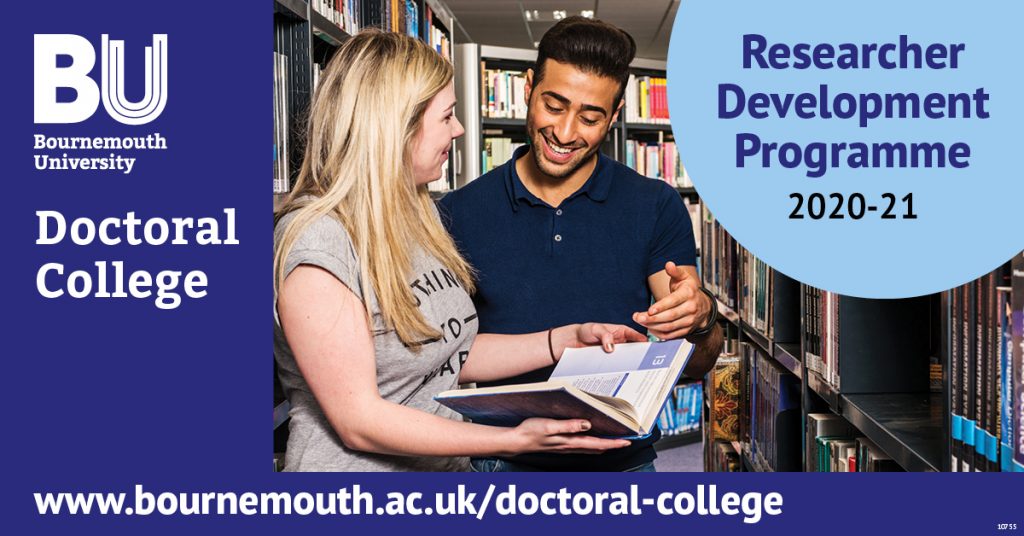
 Bournemouth University is delighted that Paul Brookes, Head of Innovation, Siemens ITS at Siemens Mobility Ltd, will be providing an open briefing session to BU on Thursday 15th April at 12noon. He will explore current research priorities before an open Q&A session. This online event will be chaired by SIA Conveners, Professors Christos Gatzidis and Kate Welham.
Bournemouth University is delighted that Paul Brookes, Head of Innovation, Siemens ITS at Siemens Mobility Ltd, will be providing an open briefing session to BU on Thursday 15th April at 12noon. He will explore current research priorities before an open Q&A session. This online event will be chaired by SIA Conveners, Professors Christos Gatzidis and Kate Welham. It is exactly ten years since the BU Research Blog was launched at Bournemouth University!
It is exactly ten years since the BU Research Blog was launched at Bournemouth University!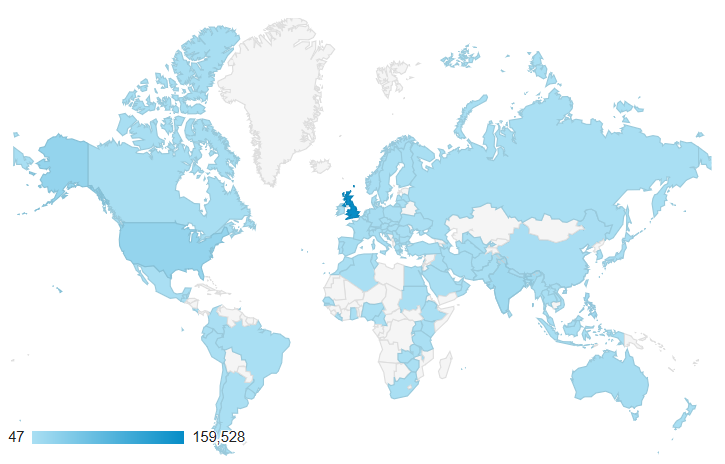
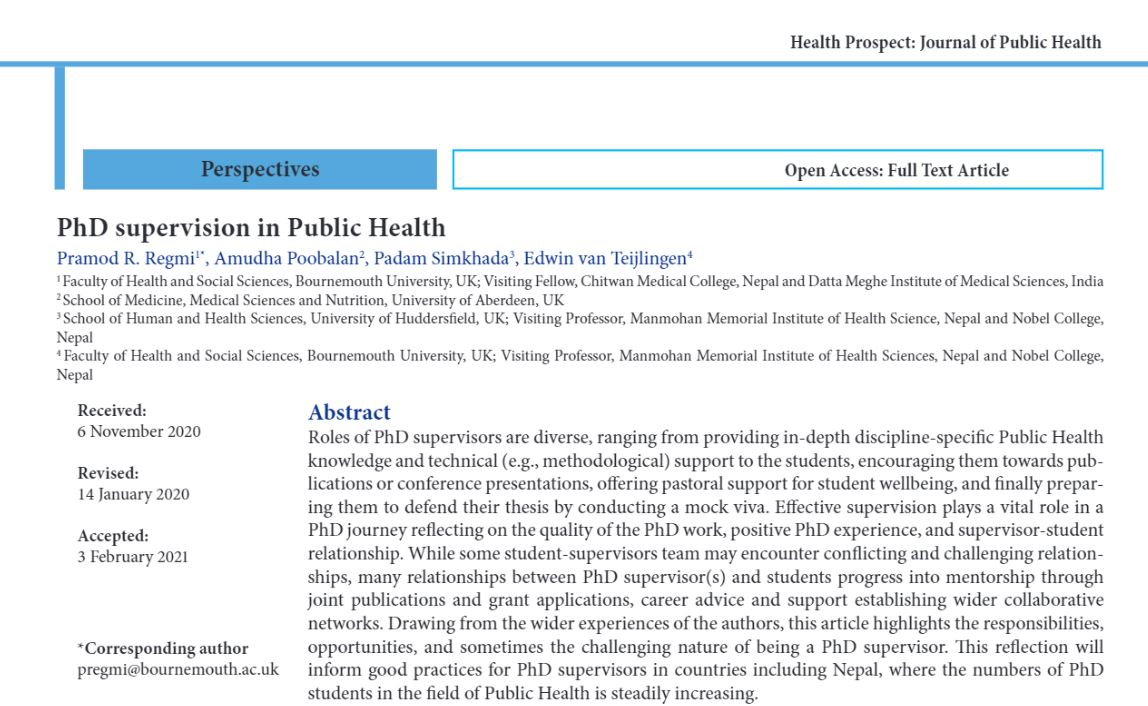

 Did you become a parent last year, or are you an expectant parent? If so, we would like to invite you take part in an online questionnaire about your experiences of perinatal mental health.
Did you become a parent last year, or are you an expectant parent? If so, we would like to invite you take part in an online questionnaire about your experiences of perinatal mental health. Professor Vanora Hundley is Deputy Dean for Research and Professional Practice in the Faculty of Health and Social Sciences (HSS). As Professor of Midwifery and an experienced midwifery researcher, Vanora has led a range of studies in the reproductive health field both in the UK and internationally. In this blog post, Vanora discusses the support available in FHSS to support mentoring.
Professor Vanora Hundley is Deputy Dean for Research and Professional Practice in the Faculty of Health and Social Sciences (HSS). As Professor of Midwifery and an experienced midwifery researcher, Vanora has led a range of studies in the reproductive health field both in the UK and internationally. In this blog post, Vanora discusses the support available in FHSS to support mentoring.
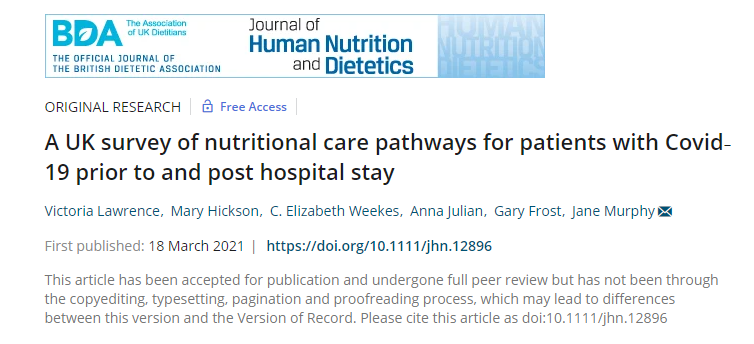
 The RDS Funding Development Briefings have been occurring weekly, on a Wednesday since January. Thank you to all of you who have engaged in the sessions, it’s been a pleasure to see so many faces joining us.
The RDS Funding Development Briefings have been occurring weekly, on a Wednesday since January. Thank you to all of you who have engaged in the sessions, it’s been a pleasure to see so many faces joining us.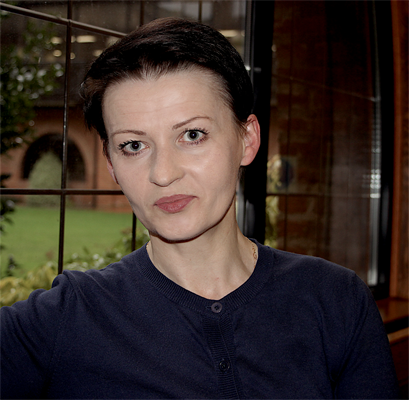 Dr Alla Yankouskaya is a Senior Lecturer in Psychology in the Faculty of Science and Technology. Her research focuses on social cognitive neuroscience and neuroimaging and she investigates the cognitive and brain mechanisms of human perceptions and attention. In this blog post, she discusses her experience of mentorship at Bournemouth University.
Dr Alla Yankouskaya is a Senior Lecturer in Psychology in the Faculty of Science and Technology. Her research focuses on social cognitive neuroscience and neuroimaging and she investigates the cognitive and brain mechanisms of human perceptions and attention. In this blog post, she discusses her experience of mentorship at Bournemouth University.
 Professor Tiantian Zhang is Deputy Dean of Research and Professional Practice in the Faculty of Science and Technology (FST) at Bournemouth University. She is a leading figure internationally in research on cryopreservation of gametes and embryos of fish species and her research interests have been in the areas of cryopreservation of reproductive cells and the effect of cryopreservation on genome integrity and cellular metabolism with applications in biomedicine, conservation and aquaculture. In this blog post, Tiantian discusses the support available in FST to support mentoring.
Professor Tiantian Zhang is Deputy Dean of Research and Professional Practice in the Faculty of Science and Technology (FST) at Bournemouth University. She is a leading figure internationally in research on cryopreservation of gametes and embryos of fish species and her research interests have been in the areas of cryopreservation of reproductive cells and the effect of cryopreservation on genome integrity and cellular metabolism with applications in biomedicine, conservation and aquaculture. In this blog post, Tiantian discusses the support available in FST to support mentoring.

















 New Nepal scoping review on maternal & neonatal health
New Nepal scoping review on maternal & neonatal health Fourth INRC Symposium: From Clinical Applications to Neuro-Inspired Computation
Fourth INRC Symposium: From Clinical Applications to Neuro-Inspired Computation Writing policy briefs
Writing policy briefs Upholding Excellence: The Concordat to Support Research Integrity
Upholding Excellence: The Concordat to Support Research Integrity ECR Funding Open Call: Research Culture & Community Grant – Application Deadline Friday 12 December
ECR Funding Open Call: Research Culture & Community Grant – Application Deadline Friday 12 December MSCA Postdoctoral Fellowships 2025 Call
MSCA Postdoctoral Fellowships 2025 Call ERC Advanced Grant 2025 Webinar
ERC Advanced Grant 2025 Webinar Horizon Europe Work Programme 2025 Published
Horizon Europe Work Programme 2025 Published Horizon Europe 2025 Work Programme pre-Published
Horizon Europe 2025 Work Programme pre-Published Update on UKRO services
Update on UKRO services European research project exploring use of ‘virtual twins’ to better manage metabolic associated fatty liver disease
European research project exploring use of ‘virtual twins’ to better manage metabolic associated fatty liver disease